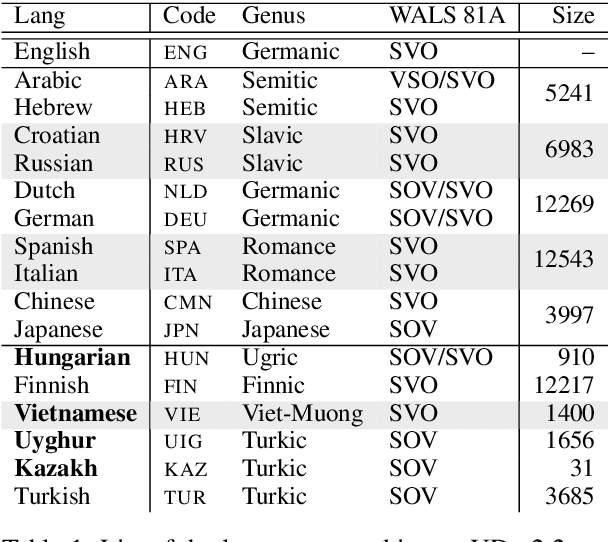Low-Resource Parsing with Crosslingual Contextualized Representations
Paper and Code
Sep 19, 2019



Despite advances in dependency parsing, languages with small treebanks still present challenges. We assess recent approaches to multilingual contextual word representations (CWRs), and compare them for crosslingual transfer from a language with a large treebank to a language with a small or nonexistent treebank, by sharing parameters between languages in the parser itself. We experiment with a diverse selection of languages in both simulated and truly low-resource scenarios, and show that multilingual CWRs greatly facilitate low-resource dependency parsing even without crosslingual supervision such as dictionaries or parallel text. Furthermore, we examine the non-contextual part of the learned language models (which we call a "decontextual probe") to demonstrate that polyglot language models better encode crosslingual lexical correspondence compared to aligned monolingual language models. This analysis provides further evidence that polyglot training is an effective approach to crosslingual transfer.
 Add to Chrome
Add to Chrome Add to Firefox
Add to Firefox Add to Edge
Add to Edge